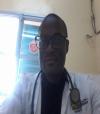Have Jaundice. Blood Test Normal. Feeling Fatigue And Shortness Of Breath. What's Wrong?

 Fri, 8 Mar 2013
Answered on
Fri, 8 Mar 2013
Answered on
 Tue, 2 Apr 2013
Last reviewed on
Tue, 2 Apr 2013
Last reviewed on
Doctor says my new lab test results are "normal": "Blood Count, Platelet automated=258....BUN=9.... BUN/Creatinine Ratio=13....Serum Calcium=8.9....Carbon DioxideTotal=25.....Bilirubin total=0.3....
THERE ARE OTHER LABS (too many, unless specifics are asked I won't mention). I realize it might seem psycho-somatic! But consider this: I run an organic farm, have taught numerous mental health classes/managed self-help programs, am an inspiration to everyone around me, BUT I am once again, going downhill - am beyond fatigued and short of breath (palpations / arrythmia / urination wake me up 5xs night), kidney pain (superficial kidney tests "normal") and I, a self-knowledgeable, responsible person knows SOMETHING is WRONG. Any thoughts/direction will be appreciated. I will have to get tests on my own (limited budget - I am on Soc Sec, have only minimal health care oversight at low-income/Free Clinic (translation=Medicare will carry me to the ER).
I believe I have gradually deteriorating multiple organ failure and cognitive decline from the numerous TBI's I sustained as a child and teen (not discussed in this voluminous email of symptoms/history because I am so adept at managing these symptoms and did nto want to confuse you). However, I also believe some of my cognitive confusion symptoms are related to either liver or kidney failure. I do not know which type of kidney damage is causing my constant kidney pain and urge to urinate and high bacteria count upon urinalysis (for 40 years or more, always treatable with antibiotics for which I have been given waaay too many -- a kind of chronic kidney infection caused by some kind of blockage?). I also believe my jaundice is caused by either liver or gall bladder? and could include an actual progressive problem which could be slowed down or reversed if I knew what it was - there are so many different tests and directions it is hard to manage which ones to choose, but the diets associated with different issues are different and can contribute to increased problems if I pick the wrong one. For example, I have from trial and error put myself on a low animal fat diet, and also, one would think high protein, high XXXXXXX diet would be healthy but NOT for me! Cannot handle spinach, chocolate, meat, all WRONG for kidney failure - but what kind do I have? The standard front-door superficial test say nothing! This can't be right and I am not imagining my symptoms and the wrong questions are being asked and wrong tests being given if doctors says tests are normal.
from for medical, two systems have to be first closely examined before anything can be done, the urogenital system and the gastrointestinal system.
For kidney disease, its inevitable consulting a nephrologist for a careful nephrologic and kidney examination and work up. Serum creatinine levels, urine porteins, serume electrolytes especially Calcium and Potassium are key elements that have to be reevaluated. An abdominal ultrasound to see the size and stucture of the kidneys, together with an abdominal CT scan are very valuable diagnostic tools.
For the liver, ultrasound and CT scan of the abdomen too shall be very helpful. Liver enzymes, and tests for different viral hepatitis, shall give us an idea of the liver function and particular activity going on in the liver. Gall stones shall be excluded and checked, cysts, masses or fatty liver excluded.
Consulting a nephrologist and a gastroentrologist are the most valuable things to do now in order to gain more accurate insights into the state of your health now. Non conventional medicine helps too, but its always better to start with conventional medicine, which works most of the time, and can easily be understand and information easily shared and gained amongst colleagues.
Thanks and hope this helps as I wish you the best,
Luchuo, MD.
Answered by

Get personalised answers from verified doctor in minutes across 80+ specialties



